
Lipedema, a condition characterized by abnormal fat accumulation in the legs and arms, can be challenging to manage. Recent studies have highlighted the effectiveness of weight loss medications, particularly GLP-1 agonists like Semaglutide (found in Wegovy and Ozempic) and Tirzepatide (found in Mounjaro and Zepbound), in treating obesity-related conditions. Here, we explore the benefits and effectiveness of these medications for weight loss, specifically for individuals with lipedema.
What is a GLP-1?
GLP-1, or Glucagon-Like Peptide-1, is a hormone produced in the gut that significantly regulates blood sugar levels and appetite. It is part of the incretin family, which consists of hormones that increase insulin release from the pancreas in response to meals. GLP-1 is crucial for maintaining glucose homeostasis and has become a target for obesity and diabetes treatments.
Benefits and Effectiveness of Semaglutides and Tirzepatides
These weight loss medications are not new; they have been around in some form for 20 years. In recent years, numerous studies have demonstrated their powerful health benefits. In the last 6-8 years, groundbreaking studies have shown the huge benefits of these medications, including reducing dementia, heart disease, and 23 obesity-related cancers, and the list continues to grow.
How GLP-1 Medications Work
The L-cells in the intestine secrete GLP-1 after eating. It has several important functions:
- Stimulates Insulin Secretion:
- GLP-1 enhances insulin secretion from the pancreas, which helps lower blood sugar levels after eating.
- Inhibits Glucagon Release:
- Glucagon is a hormone that raises blood sugar levels. GLP-1 inhibits its release, further helping to control blood sugar.
- Slows Gastric Emptying:
- By slowing the stomach emptying, GLP-1 helps you feel full longer after eating, reducing overall food intake.
- Reduces Appetite:
- GLP-1 acts on the brain to decrease appetite and increase feelings of satiety, which can lead to weight loss.
- Improves Insulin Sensitivity:
- GLP-1 enhances the body’s sensitivity to insulin, making it more effective at lowering blood sugar levels.
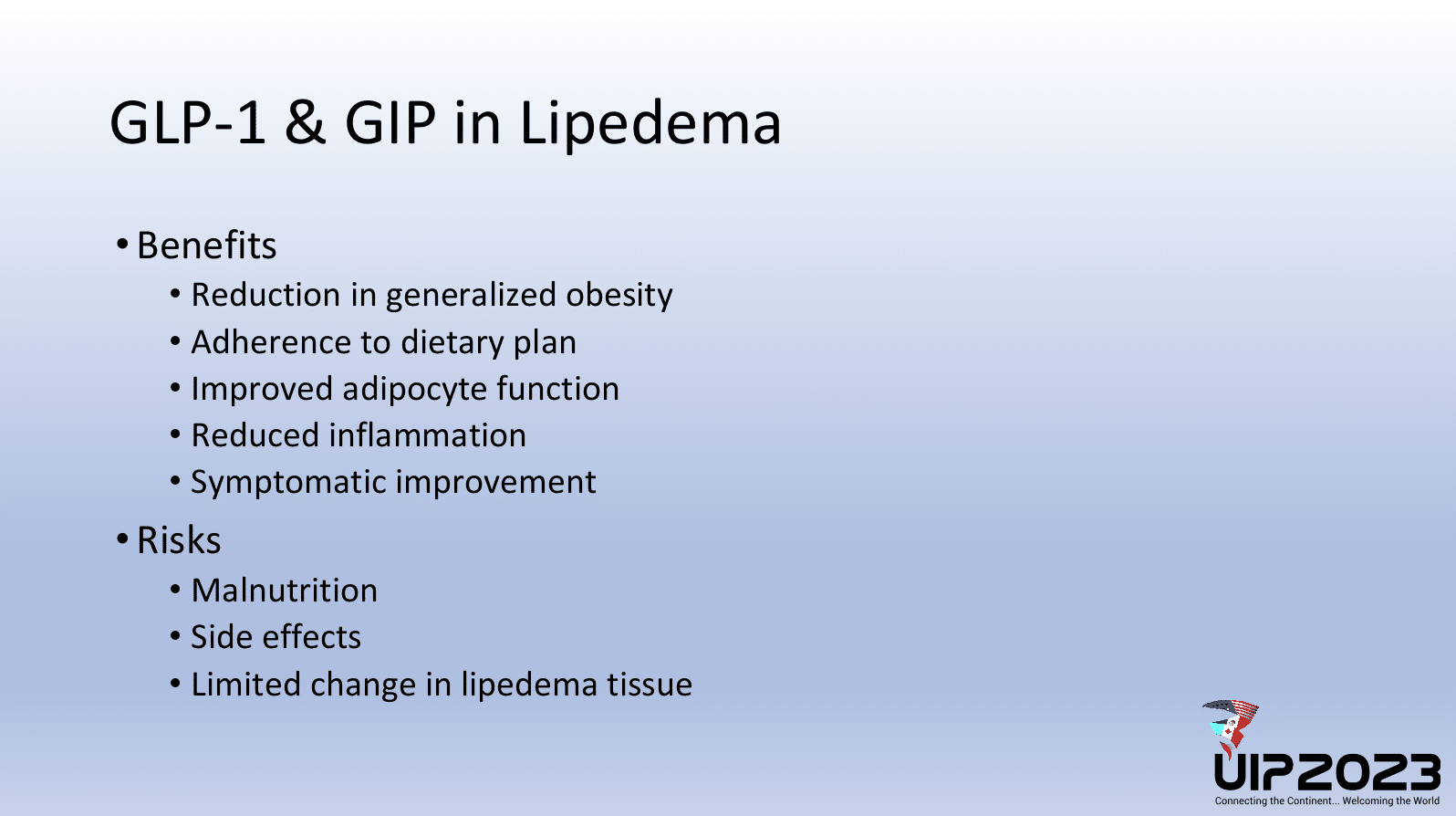
GLP-1 Agonists: Semaglutide and Tirzepatide
GLP-1 agonists are medications that mimic the action of GLP-1. They bind to GLP-1 receptors and activate them, providing the same benefits as the natural hormone but with a longer duration of action. Two commonly used GLP-1 agonists are Semaglutide and Tirzepatide.
Semaglutide:
- Weight Loss: Studies, including one published in the New England Journal of Medicine (NEJM), show an average weight loss of 15% of initial body weight with Semaglutide.
- Blood Pressure: Effective in controlling blood pressure.
- Blood Sugar Levels: Helps in controlling blood sugar levels.
- Cardiometabolic Risk Factors: Greater improvements in cardiometabolic risk factors compared to those taking a placebo.
- Physical Functioning: Participants reported greater physical functioning than those on a placebo.
Additional Benefits: Reduced craving for food, decreased addictive behaviors, a significant reduction in major cardiac events (27% reduction in fatal heart attacks), 7% reduction in stroke, decreased occurrence of obesity-related cancers, improved fertility in both men and women, reduced heart failure rates, and increased survival in heart failure patients. It also shows promise in slowing the progression of Parkinson’s disease.
Tirzepatide:
- Weight Loss: Studies show an average weight loss of 21% to 25% of body weight.
- Similar Benefits: Comparable to Semaglutide, including improved blood pressure, blood sugar levels, and cardiometabolic risk factors.
Side Effects and Contraindications
Common Side Effects:
- Nausea: 44% experience nausea, but only a small percentage (1.8%) discontinue due to this. This dose-dependent side effect develops when doses are increased and decreases if doses are maintained or decreased.
- Gastrointestinal Issues: This can cause constipation and diarrhea, generally when the dose is increased.
- Increased Heart Rate and Dehydration: It is important to stay hydrated.
Serious Side Effects:
- Pancreatitis: Rare (0.18%).
Contraindications: Not recommended for individuals with a history of Medullary Thyroid Cancer, pancreatitis, or those who are pregnant. Note: While this was seen in the rats tested in the lab, we have not seen an increase in Medullary Thyroid Cancer in humans since these medications came on the market.
How These Medications May Help with Lipedema
Any treatment that lowers weight can help individuals with lipedema. Weight loss improves mobility, decreases lymphatic pressure, and improves insulin resistance. There have been no randomized controlled trials of this medication in women with lipedema. While there are no approved indications for using GLP-1 agonists specifically for the treatment of lipedema, these medications have shown numerous health benefits for women with dozens of medical conditions, such as Diabetes, Heart Disease, Kidney Disease, Parkinson’s Disease, and Obesity, as well as for women without any existing medical problems.
For women with lipedema, weight reduction can help decrease the pressure on the lymphatic system, potentially reducing the severity of symptoms such as pain and mobility issues. With less weight to carry, women with lipedema often experience improved mobility and reduced discomfort during physical activities. GLP-1 agonists can help lower inflammation, a common lipedema issue, by improving metabolic health and reducing adipose tissue.
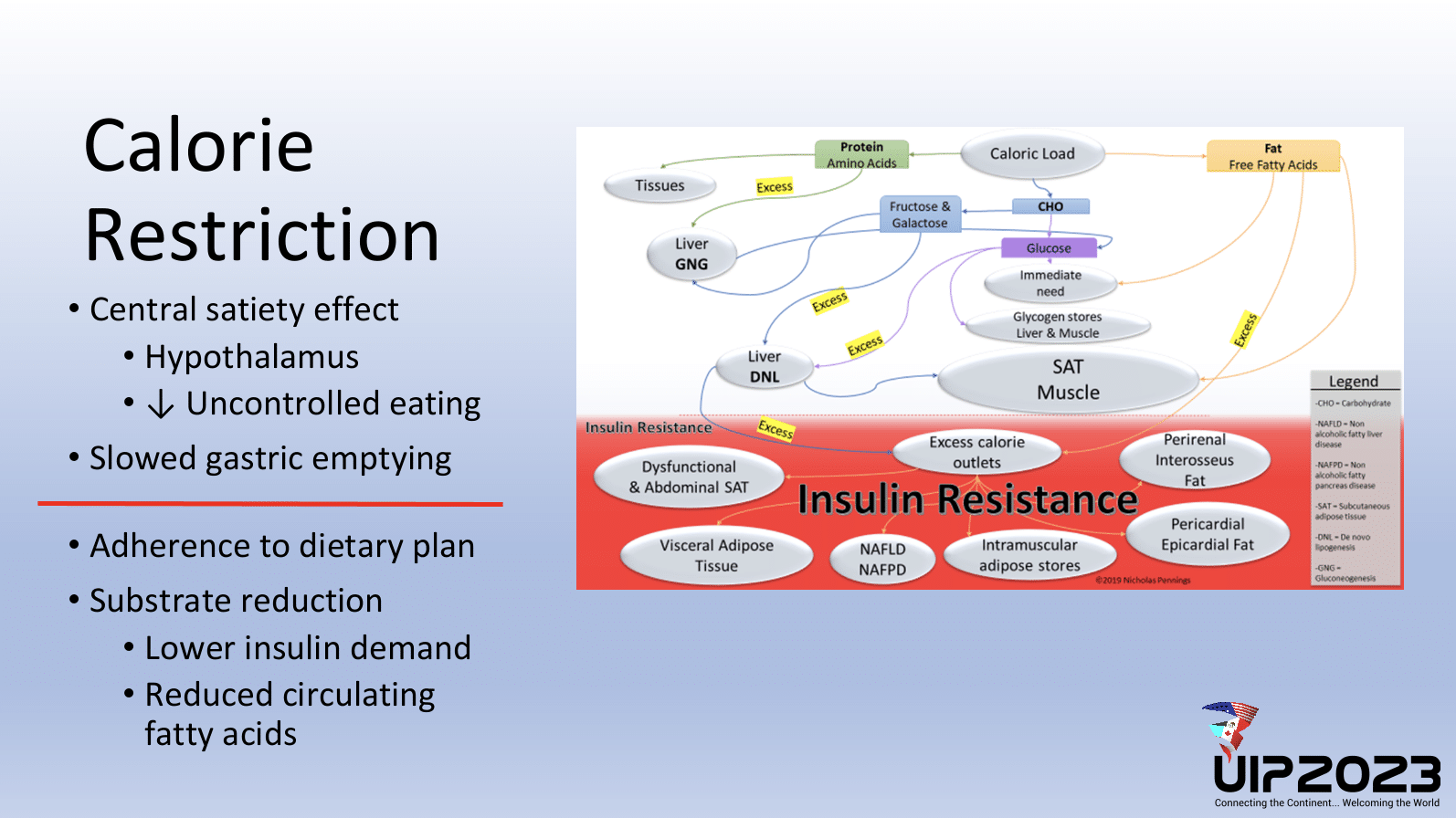
1. General Weight Reduction
- General Weight Loss: GLP-1 agonists have been shown to help with substantial weight loss. Semaglutide users have reported an average weight loss of 15% of initial body weight, while Tirzepatide users have seen losses of 21% to 25%.
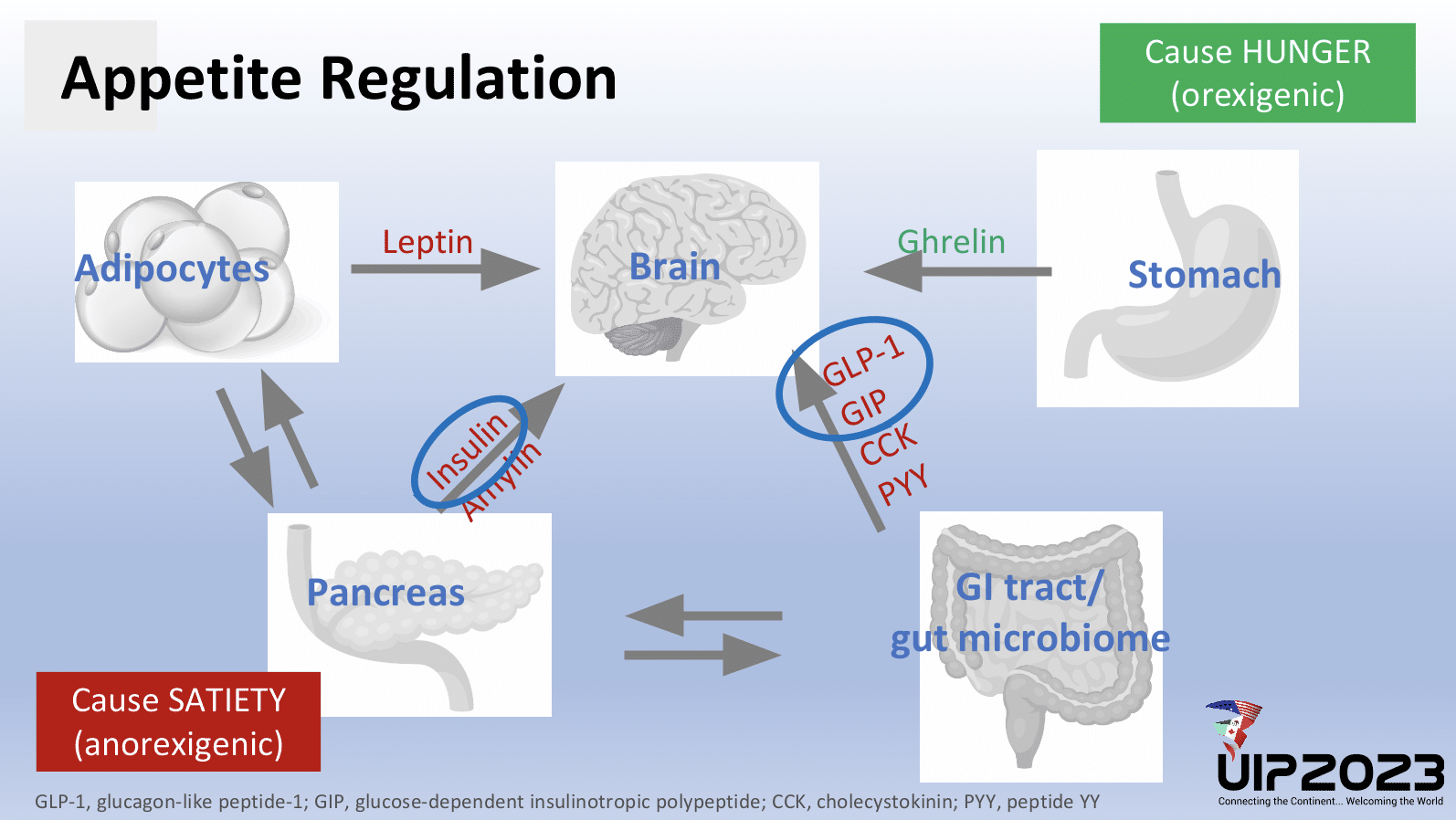
2. Improved Mobility for Women with Lipedema
- Decreased Lymphatic Pressure: Weight loss can reduce the pressure exerted on the lymphatic system, improve lymphatic flow, reduce swelling, and decrease lipedema inflammation.
- Enhanced Physical Functioning: Because they are lighter, women with lipedema often experience improved mobility and reduced discomfort during physical activities.
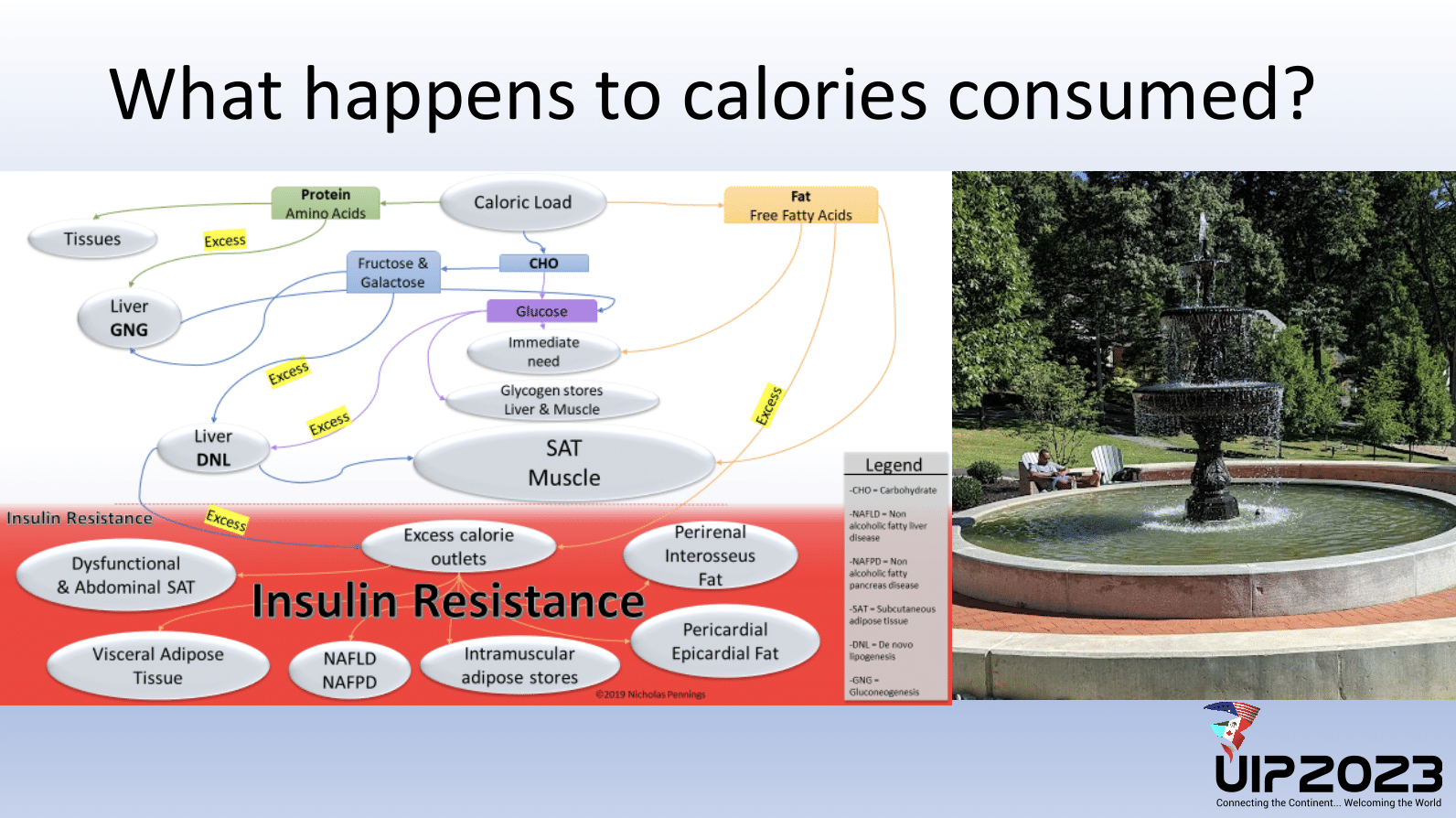
3. Reduction of Pain and Tenderness in Lipedema Tissue
- Reduced Pain and Tenderness: Many women with lipedema experience significant pain and tenderness in the affected areas, often accompanied by painful nodules. With weight loss on these medications, the lipedema tissue is less tender, and the lipedema nodules have been reported to be softer. Some patients report improved leg pain, softer nodules, reduced tenderness in lipedema areas, and decreased knee pain. However, not everyone experiences weight loss or symptom improvement with these medications.
4. Reduction in Inflammation in Lipedema
- Anti-inflammatory Effects: GLP-1 agonists can help lower inflammation, a common lipedema issue, by improving metabolic health and reducing adipose tissue. These medications directly affect the adipose cell’s biology, and they become a less-inflammatory-prone type of adipose cell.
5. General Cardiometabolic Health
- Blood Pressure Control: GLP-1 agonists like Semaglutide have effectively controlled blood pressure, benefiting cardiovascular health.
- Improved Blood Sugar Levels: These medications help control blood sugar levels, reducing the risk of diabetes-related complications.
- Lowered Cardiometabolic Risk: Users of GLP-1 agonists have shown greater improvements in cardiometabolic risk factors, such as cholesterol levels and inflammatory markers.
6. General Psychological Improvements
- Improved Quality of Life: Weight loss and reduced symptoms can lead to better mental health, increased self-esteem, and a more positive outlook.
- Reduction in Addictive Behaviors: GLP-1 agonists have been shown to reduce cravings and addictive behaviors, which can help with overall lifestyle changes.
7. Highly Significant Long-term Health Benefits for All
- Reduction in Major Cardiac Events: Studies have shown a significant decrease in major cardiac events, including a 27% reduction in fatal heart attacks.
- Decreased Stroke Risk: Users have experienced a 7% reduction in stroke risk.
- Lowered Cancer Risk: The rate of obesity-related cancers has decreased, with a 13% reduction reported.
- Improved Fertility: These medications have improved fertility in both male and female patients.
Heart Failure: GLP-1 agonists reduce the risk of heart failure and increase survival rates in patients with existing heart failure.
Clinical Insights:
When women with Lipedema lose weight while following the Mediterranean diet, they lose fat not only in their abdomen but also in their Lipedema-affected areas. In a study that will be published soon, Dr. Sam Klein, Dr. Vincenza Cifferelli, and Dr. Wright showed that women with lipedema do lose adipose tissue in the affected areas, which conflicts with the generally accepted idea that lipedema fat will not be reduced with weight loss.
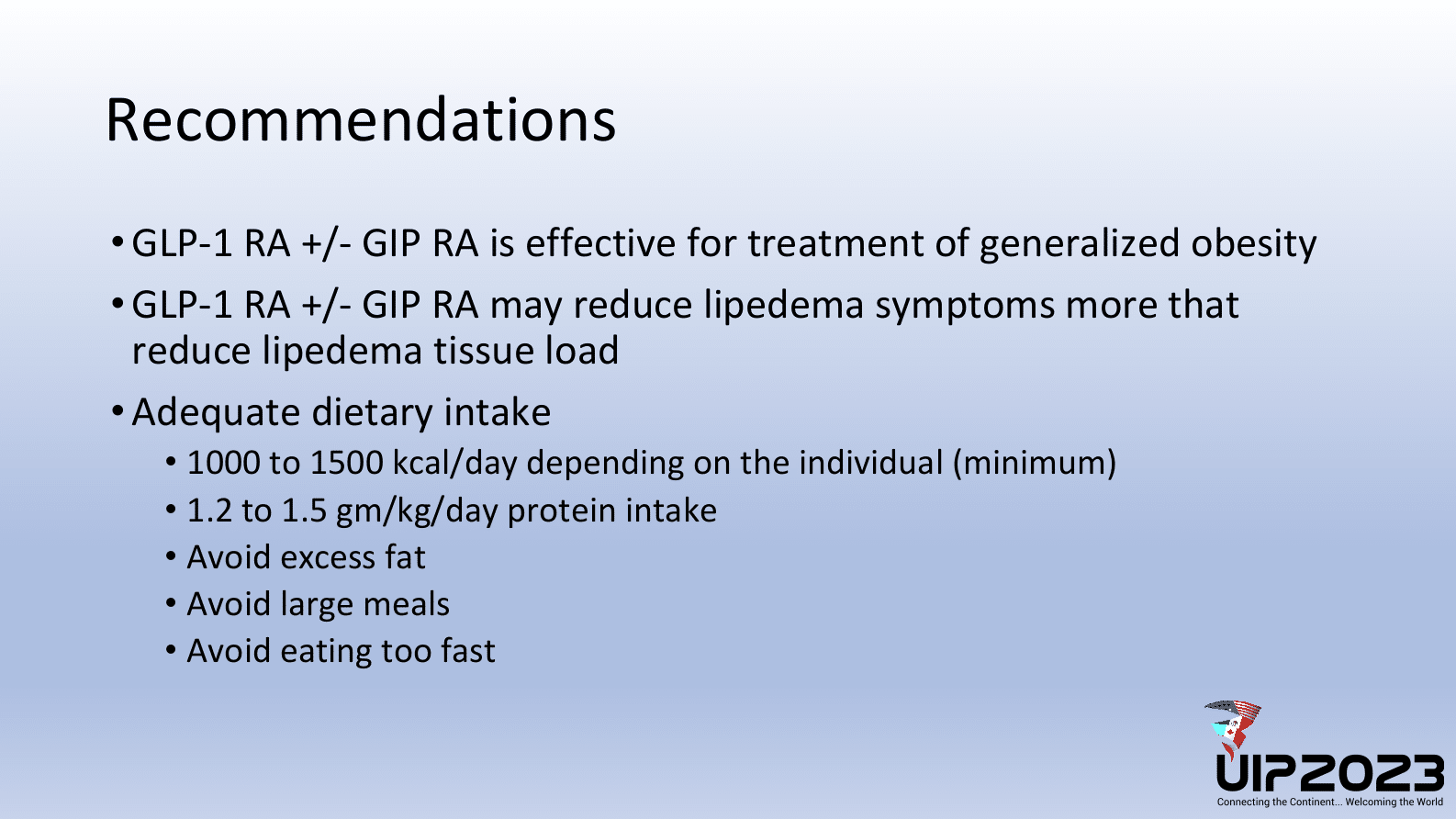
Barriers to Use
These highly effective weight loss medications are not covered or not affordably covered by almost all insurance. Initially, some patients received coverage for these medications, but fewer and fewer patients are getting coverage for them as time goes on.
- Lack of Approved Indication: There is no approved indication for using GLP-1 agonists specifically for treating lipedema.
- Cost: These medications can be expensive, and fewer insurance companies are covering the cost as time goes on.
- Awareness: There is a lack of awareness about the potential benefits of these medications for lipedema.
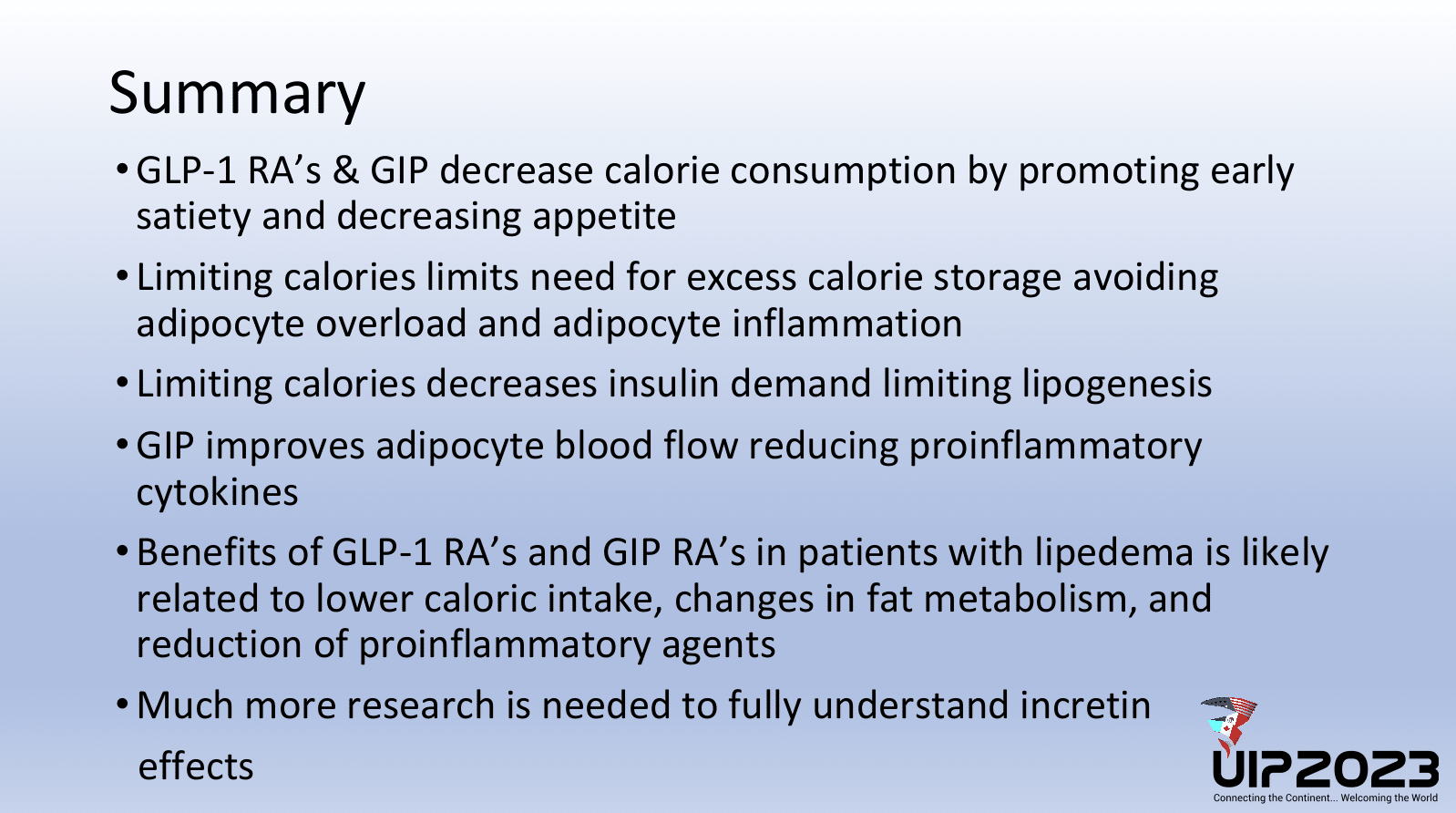
Conclusion
We know that GLP-1 agonists like Semaglutide and Tirzepatide can offer numerous health benefits that can significantly improve the lives of some women with lipedema. These medications aid in weight loss, enhance metabolic health, reduce pain, improve mobility, and offer long-term cardiovascular benefits. While not all women with lipedema will experience the same benefit level, the potential improvements in quality of life make these treatments a promising option. Dr. Wright and his team are dedicated to exploring these innovative treatments to provide effective management strategies for lipedema patients. Stay informed and empowered with the latest advancements in lipedema treatment options.
While GLP-1 agonists like Semaglutide and Tirzepatide show promising results in weight loss and managing obesity-related conditions, their specific impact on lipedema requires more research. Dr. Wright and his team are at the forefront of this research, working to provide effective treatments for those affected by lipedema. By exploring these medications and their potential benefits, we can move closer to improving the quality of life for individuals with this challenging condition.
In this insightful interview between Dr. Wright and Dr. Nicholas Pennings, explore the fascinating realm of GLP-1 agonists and their impact on lipedema. Delve into the scientific nuances of the GLP-1 Agonist, Wegovy, and the GLP/GIP Agonist, Zepbound, as they unravel their roles in treating lipedema. Dr. Pennings provides expert insight into the mechanism of these new medications. Dr. Pennings also sheds light on the benefits of Bariatric/Metabolic surgery for lipedema, providing a comprehensive overview. Join the conversation as they share their valuable practice experiences with these innovative treatments for managing lipedema. Stay informed and empowered on lipedema treatment options with this engaging discussion.
Watch the interview here:
Watch the International LWA Clinicians Panel Discussion on Prescribing GLP-1 RA Medication in Lipedema:
References:
- Aronne LJ, Sattar N, Horn DB, et al. Continued Treatment With Tirzepatide for Maintenance of Weight Reduction in Adults With Obesity: The SURMOUNT-4 Randomized Clinical Trial. JAMA. 2024;331(1):38-48. doi:10.1001/jama.2023.24945
https://jamanetwork.com/journals/jama/fullarticle/2812936 - Davidson MB. In adults with BMI ≥27 kg/m2 and type 2 diabetes, adding tirzepatide to a lifestyle intervention increased weight loss at 72 wk. Ann Intern Med. 2023 Nov;176(11):JC129. doi: 10.7326/J23-0089. Epub 2023 Nov 7. PMID: 37931265. https://pubmed.ncbi.nlm.nih.gov/37931265/ and https://www.acpjournals.org/doi/10.7326/J23-0089
- Garvey WT, Frias JP, Jastreboff AM, le Roux CW, Sattar N, Aizenberg D, Mao H, Zhang S, Ahmad NN, Bunck MC, Benabbad I, Zhang XM; SURMOUNT-2 investigators. Tirzepatide once weekly for the treatment of obesity in people with type 2 diabetes (SURMOUNT-2): a double-blind, randomised, multicentre, placebo-controlled, phase 3 trial. Lancet. 2023 Aug 19;402(10402):613-626. doi: 10.1016/S0140-6736(23)01200-X. Epub 2023 Jun 26. PMID: 37385275. https://pubmed.ncbi.nlm.nih.gov/37385275/ https://www.thelancet.com/journals/lancet/article/PIIS0140-6736(23)01200-X/abstract
- Małecki MT, Batterham RL, Sattar N, Levine JA, Rodríguez Á, Bergman BK, Wang H, Ghimpeteanu G, Lee CJ. Predictors of ≥15% Weight Reduction and Associated Changes in Cardiometabolic Risk Factors With Tirzepatide in Adults With Type 2 Diabetes in SURPASS 1-4. Diabetes Care. 2023 Dec 1;46(12):2292-2299. doi: 10.2337/dc23-1135. PMID: 37824793; PMCID: PMC10698219. https://pubmed.ncbi.nlm.nih.gov/37824793/
- Jastreboff AM, Aronne LJ, Ahmad NN, Wharton S, Connery L, Alves B, Kiyosue A, Zhang S, Liu B, Bunck MC, Stefanski A; SURMOUNT-1 Investigators. Tirzepatide Once Weekly for the Treatment of Obesity. N Engl J Med. 2022 Jul 21;387(3):205-216. doi: 10.1056/NEJMoa2206038. Epub 2022 Jun 4. PMID: 35658024. https://pubmed.ncbi.nlm.nih.gov/35658024/ second link https://www.nejm.org/doi/full/10.1056/NEJMoa2206038
- Butler J, Shah SJ, Petrie MC, Borlaug BA, Abildstrøm SZ, Davies MJ, Hovingh GK, Kitzman DW, Møller DV, Verma S, Einfeldt MN, Lindegaard ML, Rasmussen S, Abhayaratna W, Ahmed FZ, Ben-Gal T, Chopra V, Ezekowitz JA, Fu M, Ito H, Lelonek M, Melenovský V, Merkely B, Núñez J, Perna E, Schou M, Senni M, Sharma K, van der Meer P, Von Lewinski D, Wolf D, Kosiborod MN; STEP-HFpEF Trial Committees and Investigators. Semaglutide versus placebo in people with obesity-related heart failure with preserved ejection fraction: a pooled analysis of the STEP-HFpEF and STEP-HFpEF DM randomised trials. Lancet. 2024 Apr 27;403(10437):1635-1648. doi: 10.1016/S0140-6736(24)00469-0. Epub 2024 Apr 7. PMID: 38599221. https://pubmed.ncbi.nlm.nih.gov/38599221/ https://www.thelancet.com/journals/lancet/article/PIIS0140-6736(24)00469-0/abstract
- Lobkovich A, Kale-Pradhan P, Lipari M. Incretin Analogs for Weight Management in Adults Without Diabetes. Ann Pharmacother. 2024 Apr;58(4):398-406. doi: 10.1177/10600280231190089. Epub 2023 Jul 31. PMID:37522468. https://pubmed.ncbi.nlm.nih.gov/37522468/ https://journals.sagepub.com/doi/10.1177/10600280231190089
- Butler J, Abildstrøm SZ, Borlaug BA, Davies MJ, Kitzman DW, Petrie MC, Shah SJ, Verma S, Abhayaratna WP, Chopra V, Ezekowitz JA, Fu M, Ito H, Lelonek M, Núñez J, Perna E, Schou M, Senni M, van der Meer P, von Lewinski D, Wolf D, Altschul RL, Rasmussen S, Kosiborod MN. Semaglutide in Patients With Obesity and Heart Failure Across Mildly Reduced or Preserved Ejection Fraction. J Am Coll Cardiol. 2023 Nov 28;82(22):2087-2096. doi: 10.1016/j.jacc.2023.09.811. Epub 2023 Oct 8. PMID: 37993201; PMCID:PMC11185158. https://pubmed.ncbi.nlm.nih.gov/37993201/ https://www.nejm.org/doi/full/10.1056/NEJMoa2306963
